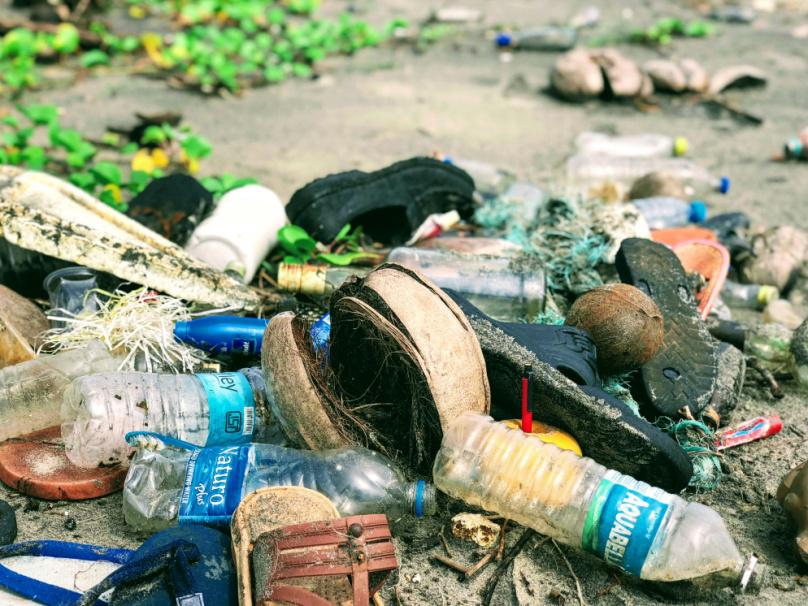
What is sustainable living? How Your Choices Shape a Sustainable Present and Future
By embracing sustainable living, we adopt practices that contribute to the well-being of the environment, society, and economy.

What is Sustainability?
Sustainability is not merely an abstract concept but a dynamic interplay between humanity and the environment. While it's certainly satisfying to enjoy the beauty of nature, sustainability goes beyond admiration; it is a commitment to maintaining the delicate balance between our species and the planet.
It's known that sustainability rests on three pillars: society, environment, and economy. We can use different terms: people, planet, and profit, symbolizing the complex connection between the well-being of individuals, the health of our environment, and the worth of our economic systems
The 'people' part of sustainability or sustainable lifestyle is about keeping society healthy and happy. It means creating communities where everyone feels included, treated fairly, and can thrive. To be sustainable, we must focus on fairness and justice.
So, it's important to consider education, healthcare, and social systems. Everyone should have access to good education and healthcare. In other words, we need strong communities. When we do these things, we're setting the stage for a future where every person can play a meaningful role in making everyone's lives better.
Let's start with a few examples, just a sneak peek into the world of possibilities with sustainable lifestyle:

The 'planet' part of sustainability is about caring for the environment. It challenges us to understand that our resources are limited and our ecosystems are delicate. To be sustainable, we need to save energy, use renewable sources, and protect the variety of life on Earth.
Using eco-friendly technologies, stopping deforestation, and supporting circular economies to ensure our planet stays healthy. Sustainable living suggests saving resources and recognizing that every small action adds up to the overall health of our environment. It doesn't matter whether it's a daily routine or a company rule; the 'planet' part of sustainability encourages everyone to work together and protect and renew our natural world.
By adopting sustainable practices, we can make a significant difference in our daily lives. Simple actions like reducing food waste, supporting local businesses, and conserving water can all contribute to a more sustainable lifestyle. Additionally, engaging in conversations and spreading awareness about sustainability can inspire others to join the movement. Together, we can create a future where the well-being of people, the health of our planet, and the strength of our economy are all prioritized.

The 'profit' part of sustainability doesn't say we should give up on making money. In general, sustainability challenges us to reconsider how we usually make money and to choose ways that work well in the long run instead of just making quick profits. It encourages businesses to make money ethically and environmentally friendly.
For example, we can invest in technologies that are good for the environment, support businesses that care about society, and measure success by more than just how much money we make. These strategies help economic growth while also keeping in mind the values of sustainability. By connecting making money with the bigger goals of society and the environment, we set the stage for a future with a balanced and strong economy.

Sustainability needs synergy. Sustainability works best when everyone joins in. It's not just about one person or one activity; it's like a team effort.
A sustainable future is where individuals make good choices for everyday activities, companies have the right plans, and governments create rules that encourage sustainability.
Every individual can pick eco-friendly products and do things the right way.
To cultivate sustainability as a lifestyle, we must understand sustainability goals, maintain awareness, and exhibit mindfulness in our actions. This active engagement empowers us to be conscientious citizens dedicated to promoting development and adopting environmentally friendly practices.
A study in Greece explored sustainability practices by researching the sustainable actions of individuals.
The focus of this study was on sustainability practices, especially examining the sustainable behaviors of individuals. A customized questionnaire was developed and distributed via email to 500 participants to capture insights into their daily purchasing and consumption habits. Scientists received 483 answers and analyzed them using statistical tools. This research helped with suggestions on how to make more people aware of sustainability. Also, this research helped inspire individuals to make eco-friendly choices and create new habits that are important for being a good citizen of the Earth.
Despite a positive attitude towards sustainability reported by 60.2% of respondents, the study revealed that only 6.4% actively engage in sustainable living practices. Examples include the purchase of organic food (11.8%), shopping for secondhand clothes (1.4%), clothing recycling and repair (11%), utilization of public transportation (33.7%), and participation in environmental volunteer activities (12%). This difference suggests a potential misalignment between respondents' perceptions and actual behaviors. It may indicate a lack of awareness regarding their actions or a limited understanding of sustainable living. Consequently, there is a demonstrated need to increase awareness and foster consciousness development towards achieving sustainable citizenship with sustainable choices (1).
In conclusion, sustainability isn’t just a faraway dream it’s something we need to do from now on. Eco-friendly lifestyle will create a story of improvement that thinks about:
Understanding the connection between people, the planet, and making money, we initiate a journey toward building a fair, strong, and sustainable future. The choices we make today are like messages for the future, and we have the power to make a world that’s good for many, many years.
By embracing the interdependence of humanity, the environment, and economic prosperity, we embark on a meaningful journey to construct a future characterized by equity, resilience, and sustainability. Each decision we make in the present echoes through time, sending messages to shape the world for future generations. Our collective power lies in steering this course toward a world that will thrive for many years. It's a call to action, urging us to be architects of a future where the well-being of people, the health of our planet, and the prosperity of economic systems harmoniously coexist.
A sustainable lifestyle will not only positively impact the environment but also enhance individual well-being, contribute to a healthier planet, and foster long-term economic and community resilience.

By embracing sustainable living, we adopt practices that contribute to the well-being of the environment, society, and economy.

The idea of a sustainable diet was established in 2010.

A sustainable diet is considered to be a diet that resembles a nutritionally healthy diet.

Sustainability goes beyond admiration; it is a commitment to maintaining the delicate balance between our species and the planet.

Several scientists are “defending” meat consumption, replying that red meat is the source of essential nutrients.
Welcome to Sustainable Living by Science. With our scientific mindset, we are exploring how to nurture our well-being while caring for the environment. We are sharing the meaning of sustainability through evidence-based practices. Join us on this journey towards a greener, healthier future where science guides us to make the best choices for ourselves, the planet, and others.
All content is © 2024 by Sustainable Living by Science. All rights reserved.